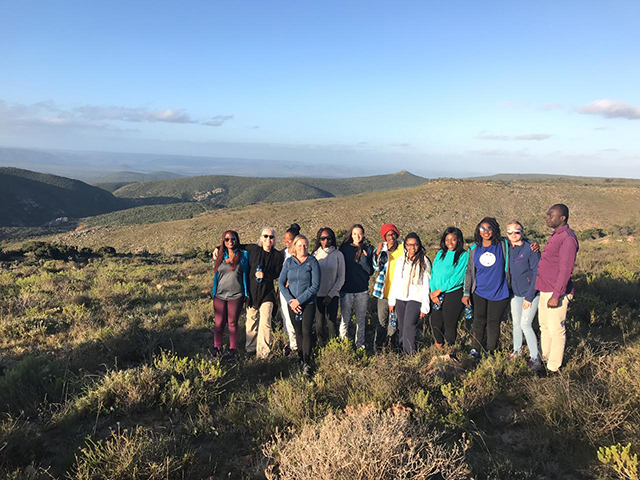
I was lucky to be part of the recent research retreat organized by the Critical Studies in Sexualities and Reproduction (CSSR) research programme, Rhodes University, Grahamstown, South Africa. The idea of a research retreat is not entirely new to me. I have heard about it, seen online advertisements about it, heard friends and colleagues talk about them, and even fantasized about attending one. But unfortunately, I never had the opportunity to attend any until now.
The retreat was held at Fort Governor's Safaris (16km from Grahamstown, along the N2 towards East London). It lasted three days, from September to 28 to 30. The venue could not have been better, a relaxing, peaceful, and stimulating getaway surrounded by nature. The CSSR did its homework well and got its logistics right. As soon as we got to the venue, we were checked into our respective cottages and thereafter, the business of teaching and learning started. The timing of the retreat was impeccable, as all the participants were at different critical stages of their research projects.
There were a couple of tasks on each day. The first was an exercise titled “Joining the Conversation”. We had about four groups, each comprising an average of three persons. The group was small enough to allow participants to work independently and also to get some really interesting discussions going. Participants were asked to choose and write about an area pertinent to their research (literature, theory, methodology) in which they have done a fair amount of reading.
Later, participants circulated their handwritten work amongst the group’s members. Group members read and wrote a response on each other’s work. This exercise aimed to prompt us to think critically, research thoroughly and think thoughtfully in order to write better and more logically. It’s common to surf the internet and read news, but acquiring and juggling the skills needed to engage readers and compose a meaningful contribution to an academic conversation remain critical to researchers. This particular exercise was, therefore, an important eye-opener.
While engaged in other tasks or exercises in writing, the second most interesting and stimulating for me was the session on identifying common academic writing errors and possible ways of addressing them. The exercise provoked conversations, debates and mutual learning among the participants.
Maintaining a logical flow of ideas while avoiding poor transition between paragraphs have been my foremost struggle in academic writing. This personal struggle, which several other participants also admitted experiencing, was masterfully addressed by Professor Catriona Macleod. During an enriching, thought-provoking 2-hour session, she provided many valuable insights on how to create coherent and logically connected ideas while writing research papers.
Overall, the retreat equipped participants with the requisite skills to become better writers, offered them the opportunity to learn from peers and inspired them to continue chasing their dreams of becoming better scholars and writers.
At a time when the quality of research mentorship is declining globally, I consider myself very privileged for the opportunity to participate in this life-transforming event. I am particularly grateful to Professor Macleod, all the participants at the event, and indeed everybody at the CSSR for such a great rewarding experience.
As they say in Xhosa, Ndiyabulela kuni nonke ngengcebiso yenu ebaluleke kakhulu
